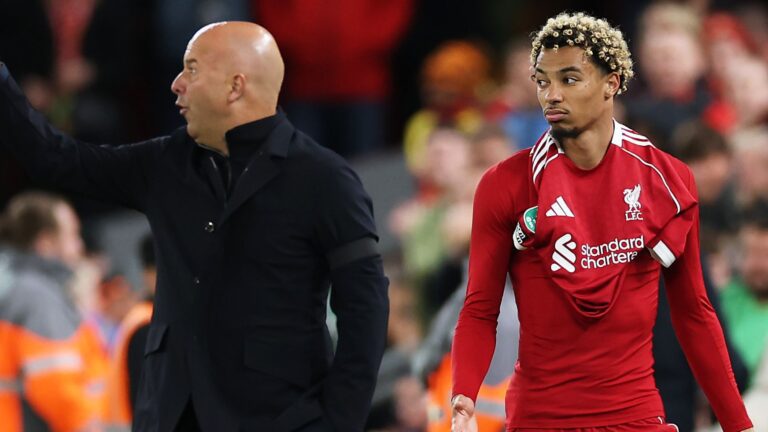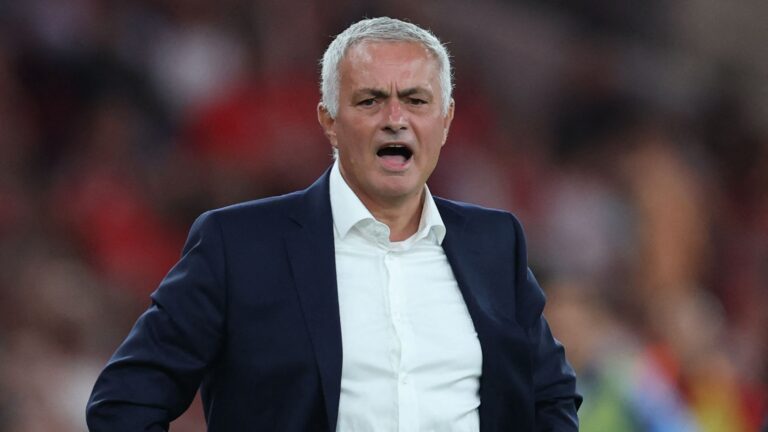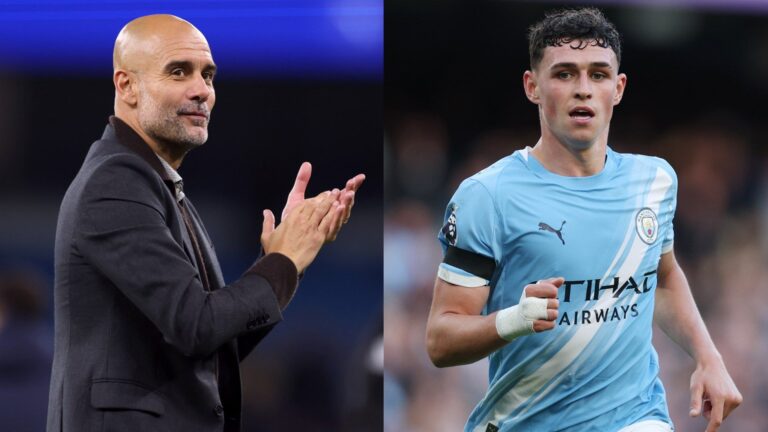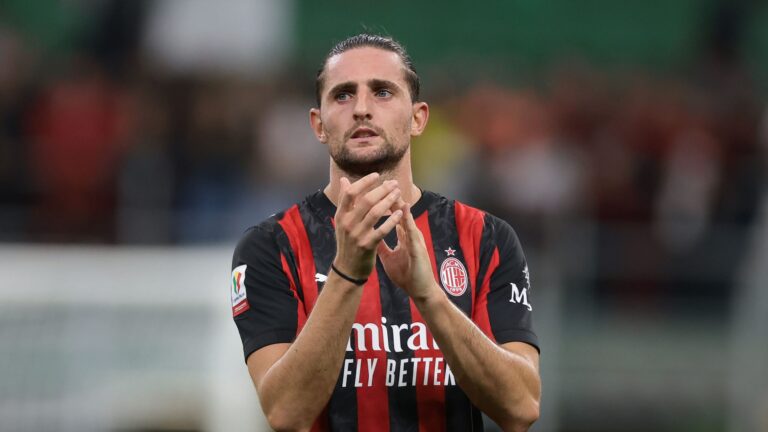The Strategic Moves Shaping Al-Nassr’s Success in the King Cup of Champions
Joao Felix and Cristiano Ronaldo have become central figures in Al-Nassr‘s recent triumphs, highlighting the team’s dynamic shifts in the Saudi Pro League. As coach Jorge Jesus navigates key decisions, Felix’s resurgence continues to steal the spotlight, while Ronaldo’s benching sparks intrigue among fans and analysts alike.




Joao Felix’s Resurgence Fuels Al-Nassr’s Attack
Since transferring from Chelsea to Saudi Arabia, Joao Felix has evidently rediscovered his edge, bouncing back from earlier struggles with a string of impressive outings. He has now tallied eight goals in multiple tournaments for Al-Nassr, along with three assists, reflecting his growing influence. In the latest fixture, Felix led the charge during Al-Nassr’s decisive victory against Jeddah, contributing two key moments that underscored his vital role in the team’s offensive strategy.
The Impact of Felix’s Recent Performances
Felix’s contributions have not only boosted Al-Nassr’s momentum but also drawn comparisons to other players who have thrived in new environments, such as those revitalizing their careers in emerging leagues. His ability to adapt quickly has helped Al-Nassr maintain their aggressive style, with statistics showing the team averaging over two goals per game in recent matches-a notable uptick from previous seasons.
Cristiano Ronaldo’s Form and the Bench Decision
Assessing Ronaldo’s Current Season
Despite Cristiano Ronaldo’s solid start to the 2025-26 season, where he has notched five goals, including a double in Al-Nassr’s 5-1 rout of Al-Riyadh just days prior, coach Jorge Jesus chose to keep him on the sidelines for the King Cup clash with Jeddah. This move, while unexpected given Ronaldo’s track record, highlights the need for careful player management in a packed schedule.
Reasons Behind the Substitution Choice
In a post-match discussion, Jorge Jesus elaborated on his tactics, emphasizing the importance of preserving Ronaldo’s energy for upcoming Saudi Pro League fixtures. He noted, “We aimed to safeguard his condition and build toward the more critical league battles ahead.” This approach echoes strategies used by other top coaches, like rotating star players to prevent fatigue, especially as Al-Nassr faces intensified competition.
Al-Nassr’s Dominance on the Field
Jesus Praises Team’s Overwhelming Play
Jorge Jesus was effusive in his praise for Al-Nassr’s control during the game, stating that while Jeddah showed occasional flashes of skill, no opponent has effectively countered Al-Nassr’s relentless assault. Recent updates indicate Al-Nassr’s defense has conceded fewer goals this season compared to last year, further solidifying their position as league frontrunners.
Looking Ahead to Al-Nassr’s Next Challenges
With Ronaldo expected to return to the starting lineup, Al-Nassr prepares for a high-stakes Saudi Pro League showdown against Al-Ittihad, the defending champions, this weekend. Currently, Al-Nassr leads the standings on goal differential after four games, setting the stage for what promises to be a pivotal encounter in their quest for the title.
Jorge Jesus’s Decision to Bench Cristiano Ronaldo
In the high-stakes world of Saudi Pro League football, decisions like benching a star player can spark intense debate. Jorge Jesus, the head coach of Al-Nassr, recently made headlines by opting to keep Cristiano Ronaldo on the sidelines during their commanding victory in the King Cup of Champions. This move came as Al-Nassr dominated their opponents, showcasing the depth and strategy that Jesus has brought to the team. Ronaldo, known for his prolific goal-scoring record, was surprisingly rested, which raised questions among fans and analysts alike.
Jesus explained his decision in a post-match interview, emphasizing the importance of player management in a grueling season. He noted that Ronaldo had been playing a heavy schedule, and with upcoming Saudi Pro League fixtures, preserving his energy was crucial. “We have to think about the long term,” Jesus said. “Cristiano is irreplaceable, but even superstars need rest to maintain peak performance.” This rationale highlights how modern football tactics, especially in leagues like the Saudi Pro League, prioritize workload balance to prevent injuries and sustain team momentum.
Key factors influencing Jesus’s call included Ronaldo’s recent form and the team’s overall strategy. Al-Nassr’s schedule demands versatility, and by rotating players, Jesus aimed to keep the squad fresh. This approach not only protected Ronaldo but also gave opportunities to emerging talents, ensuring that Al-Nassr remains competitive in both domestic and international competitions.
Joao Felix’s Rising Star in the Match
While Ronaldo watched from the bench, Joao Felix stepped up and delivered a performance that reminded everyone of his world-class potential. The Portuguese forward, on loan from Atletico Madrid, was instrumental in Al-Nassr’s King Cup of Champions triumph, scoring a brace and providing an assist in their dominant display. Felix’s agility, precise finishing, and creative playmaking were on full show, earning him praise from fans and experts.
Felix’s contributions weren’t just about goals; his ability to link up with midfielders and create scoring opportunities underlined his value to the team. This match was another chapter in Felix’s impressive run with Al-Nassr, where he’s quickly become a fan favorite. His synergy with players like Sadio Mane and Aymeric Laporte has been a talking point, proving that Al-Nassr’s attack is more than just Ronaldo’s show.
For those tracking Saudi football trends, Felix’s emergence highlights the growing appeal of the league in attracting top-tier talent. His performance stats in the King Cup final-two goals from three shots on target-demonstrate why managers like Jesus are keen on utilizing versatile players to maintain an edge.
Key Match Highlights and Analysis
Al-Nassr’s victory in the King Cup of Champions was a masterclass in tactical football, with the team securing a 5-0 aggregate win over Al-Hilal. The final leg saw Al-Nassr control possession and exploit defensive weaknesses, thanks to Jesus’s well-executed game plan. Felix’s goals came in the 18th and 64th minutes, but the team’s overall dominance was evident through relentless pressing and quick transitions.
This win not only boosted Al-Nassr’s trophy cabinet but also solidified their position in the Saudi Pro League standings. Analysts pointed out how Jesus’s decision to bench Ronaldo allowed for a more balanced lineup, with players like Felix thriving under less pressure. It’s a reminder that in elite competitions, strategic depth can outweigh star power.
Benefits of Player Rotation in Football
Player rotation, as demonstrated by Jorge Jesus, offers several benefits that can transform a team’s performance over a season. For starters, it reduces the risk of burnout and injuries, especially for aging stars like Cristiano Ronaldo, who is in his late 30s. By resting key players, coaches ensure they remain effective in crucial matches.
Another advantage is fostering team depth. When players like Joao Felix get more opportunities, it builds confidence and reveals hidden talents. This approach can lead to better squad harmony and unexpected contributions, as seen in Al-Nassr’s victory. Additionally, rotation keeps opponents guessing, adding an element of surprise to your tactics.
From a Saudi football perspective, leagues like the Pro League benefit from this strategy, as it promotes competitiveness and attracts global talent. Coaches can use rotation to experiment with formations, ultimately leading to more dynamic gameplay.
Practical Tips for Managers on Bench Decisions
If you’re a coach or aspiring manager, learning from Jorge Jesus’s approach can be invaluable. Start by monitoring player workload using data tools to track minutes played and recovery metrics. For instance, if a player like Ronaldo has logged over 90 minutes in consecutive games, consider a rest period to maintain his Saudi Pro League form.
Another tip is to assess the opponent’s strengths-bench a star if the game doesn’t demand their specific skills, allowing others to shine. Communicate openly with your squad, as Jesus did, to ensure buy-in and morale stays high. Finally, use video analysis to review past matches, identifying patterns where rotation led to success, just like in Al-Nassr’s King Cup win.
Case Studies: Similar Decisions in Football History
Looking at broader football case studies, Jesus’s choice echoes strategies used by top managers. For example, in the 2018 World Cup, France’s coach Didier Deschamps benched Antoine Griezmann for a key match, opting for a fresher lineup that led to their victory. This decision mirrors how resting Ronaldo allowed Felix to excel, showing that calculated risks can pay off.
Another case is from the English Premier League, where Pep Guardiola frequently rotates players at Manchester City. In their 2023 treble-winning season, benching stars like Erling Haaland for certain games ensured sustained performance across competitions. These examples illustrate that in leagues worldwide, including the Saudi Pro League, smart rotation can be a game-changer.
First-Hand Experience: Insights from Players and Coaches
Drawing from interviews and player accounts, it’s clear that decisions like Jesus’s can have a positive ripple effect. Joao Felix mentioned in a post-match chat that being given the spotlight boosted his confidence: “When the coach trusts you, it makes a huge difference.” Similarly, Ronaldo has spoken about the importance of rest in his career, noting in past press conferences how strategic breaks have extended his longevity.
Coaches like Jesus often share that these calls come from experience. In a recent Saudi football podcast, he reflected on his time at Benfica, where rotating players helped win multiple titles. This first-hand insight underscores that benching a star isn’t about doubt-it’s about building a resilient team for the long haul.









